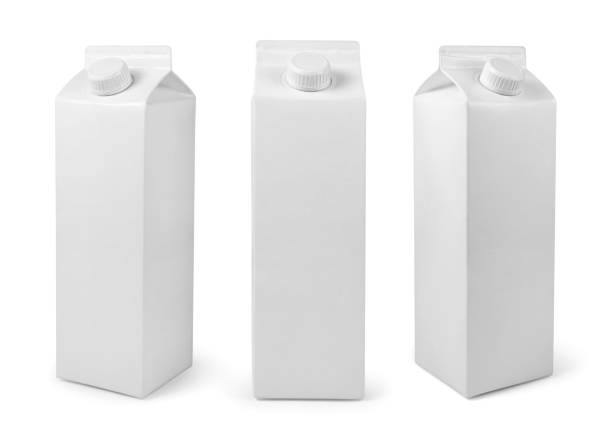As the global movement towards sustainability intensifies, industries are making significant shifts to minimize environmental impact. One sector leading this charge is the oil industry, where the adoption of sustainable oil packaging is gaining momentum. This packaging innovation not only aligns with eco-conscious consumer preferences but also reduces waste and promotes a healthier planet.
What is Sustainable Oil Packaging?
Sustainable oil packaging refers to eco-friendly materials and designs that minimize environmental harm. It prioritizes renewable, recyclable, and biodegradable resources while maintaining the quality and integrity of the packaged oil. This packaging is ideal for a variety of oils, including edible, industrial, and cosmetic oils, ensuring that environmental and practical needs are met.
Why Choose Sustainable Oil Packaging?
- Environmental Preservation:
By reducing reliance on non-recyclable materials, sustainable packaging helps decrease pollution and conserve natural resources. - Consumer Demand:
Eco-conscious consumers prefer products with environmentally friendly packaging. Choosing sustainable oil packaging enhances a brand’s appeal and strengthens customer loyalty. - Cost Efficiency:
Although initial investments in sustainable packaging may be higher, the long-term benefits, such as lower material and waste management costs, make it a viable solution. - Regulatory Compliance:
Governments worldwide are implementing stricter regulations on single-use plastics. Sustainable packaging ensures compliance with these laws, avoiding penalties and reputational damage.
Types of Sustainable Oil Packaging
- Glass Bottles:
A popular choice for edible and cosmetic oils, glass is 100% recyclable and provides excellent protection against contamination. - Recyclable Plastics:
High-quality plastics like PET and HDPE can be recycled multiple times, offering a practical and sustainable solution for industrial and cooking oils. - Paperboard Cartons:
Ideal for edible oils, paperboard cartons are made from renewable resources and are both lightweight and recyclable. - Aluminum Cans:
Lightweight, durable, and endlessly recyclable, aluminum cans are frequently used for industrial oils. - Biodegradable Pouches:
Made from plant-based materials, biodegradable pouches are a newer, innovative option for packaging small quantities of oil.
Advantages of Sustainable Oil Packaging
- Reduced Carbon Footprint:
Using renewable and recyclable materials minimizes greenhouse gas emissions during production and disposal. - Brand Differentiation:
Highlighting eco-friendly packaging as part of your product offering sets your brand apart in a competitive market. - Consumer Convenience:
Many sustainable packaging options, such as resealable cartons or pouches, provide practical benefits alongside environmental advantages. - Waste Reduction:
Recyclable and biodegradable packaging reduces the volume of waste sent to landfills, promoting a circular economy.
Innovations in Sustainable Oil Packaging
- Plant-Based Coatings:
Traditional plastic linings in cartons are being replaced with plant-based alternatives, making the entire package biodegradable. - Recycled Content Materials:
Some packaging now incorporates materials made entirely from recycled products, further reducing the need for virgin resources. - Smart Labels:
Digital labels with recycling instructions guide consumers on proper disposal methods, increasing recycling rates.
Challenges in Adopting Sustainable Oil Packaging
- Higher Initial Costs:
Sustainable materials and technologies may require a larger upfront investment, which can be a barrier for smaller businesses. - Material Limitations:
Some eco-friendly materials may not be suitable for all types of oils due to specific storage requirements. - Consumer Education:
Educating consumers about the importance of recycling and the correct disposal of packaging is essential for the system to work effectively.
How to Implement Sustainable Oil Packaging
- Choose the Right Material: Select a sustainable material that aligns with your product’s storage and safety needs.
- Invest in Research: Explore innovative packaging solutions to improve sustainability without compromising functionality.
- Emphasize Transparency: Use your product labels to highlight the eco-friendly nature of the packaging and encourage responsible disposal.
The Future of Sustainable Oil Packaging
As awareness about environmental issues grows, the demand for sustainable oil packaging will continue to rise. Innovations in biodegradable materials, zero-waste designs, and closed-loop recycling systems will drive the evolution of this essential packaging solution.
Explore Eco-Friendly Liquid Soap Containers
While sustainable packaging is transforming the oil industry, its principles are also being applied to other sectors. A notable example is eco-friendly liquid soap containers, which provide a green alternative for personal care products.
If you are interested in expanding your sustainability efforts, consider exploring Eco-Friendly Liquid Soap Containers as an impactful addition to your product range.
